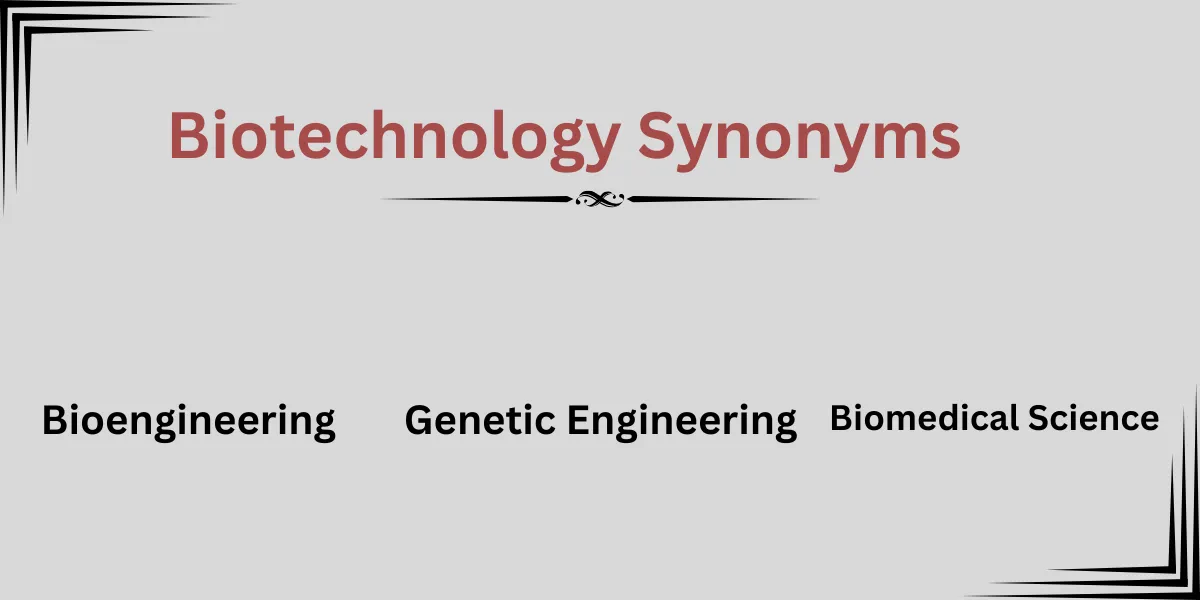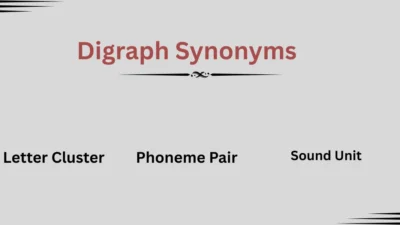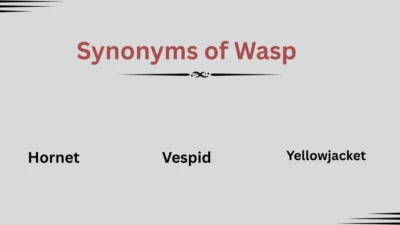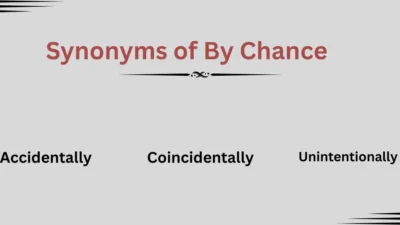Biotechnology synonyms such as genetic engineering, bioengineering, and biomedical technology describe the use of biology and technology to create products, solve problems, or enhance life. For example, genetic engineering focuses on modifying genes, while bioengineering can include designing biological systems for medicine or industry.
These terms highlight different aspects of using science to innovate and improve health, agriculture, and the environment.
If you’re writing about science, medicine, or technology, a biotechnology synonym helps make your content precise and clear.
In this guide, you’ll learn the meaning and example sentences for each synonym of biotechnology, so that you can explain scientific ideas with confidence and clarity.
What Does Biotechnology Mean?
Biotechnology is the use of living organisms, cells, or biological systems to create products, solve problems, or improve processes in medicine, agriculture, and industry. It combines biology with technology to make innovations that benefit humans and the environment.
Depending on how it’s used, biotechnology can involve:
- Medical applications — developing vaccines, drugs, or therapies
- Agricultural improvements — creating pest-resistant or high-yield crops
- Industrial processes — using enzymes or microbes to produce chemicals
- Environmental solutions — cleaning pollution or producing sustainable materials
At its core, biotechnology is about applying science to life. It transforms natural processes into tools, products, and solutions that improve daily life.
30 Synonyms & Related Terms for “Biotechnology” with Examples
1. Genetic Engineering
Meaning: The deliberate modification of an organism’s genetic material.
When to Use: Use in contexts involving DNA alteration or gene manipulation.
Example: Genetic engineering has made it possible to grow pest-resistant crops.
2. Bioengineering
Meaning: The broader application of engineering principles to biology.
When to Use: Ideal for discussions involving medical devices, prosthetics, or tissue engineering.
Example: Bioengineering helps design artificial organs that save thousands of lives.
3. Life Sciences
Meaning: A general term for sciences studying living organisms.
When to Use: Use when referring to biotechnology as part of a larger field of biology.
Example: Investments in the life sciences have surged due to advances in genetic research.
4. Biomedical Science
Meaning: The study of biological and chemical principles of health and disease.
When to Use: Best in healthcare or research-focused discussions.
Example: Biomedical science underpins many biotechnology breakthroughs.
5. Genomics
Meaning: The study of the structure, function, and mapping of genomes.
When to Use: Use when the focus is on DNA sequencing or genetic information.
Example: Genomics enables personalized medicine tailored to individual genetic profiles.
6. Biotech Industry
Meaning: The commercial sector dealing with biotech research and development.
When to Use: Suitable in business or economic contexts.
Example: The biotech industry continues to drive innovation in pharmaceuticals.
7. Molecular Biology
Meaning: The branch of biology that deals with molecular processes within cells.
When to Use: Use when discussing cellular mechanisms or lab research.
Example: Molecular biology techniques are essential for cloning and gene therapy.
8. Synthetic Biology
Meaning: The design and construction of new biological entities or systems.
When to Use: Use when highlighting innovation or bio-design.
Example: Synthetic biology aims to create bacteria that can produce biofuels.
9. Biomedical Engineering
Meaning: The application of engineering to solve medical problems.
When to Use: Use for contexts merging technology and healthcare.
Example: Biomedical engineering merges robotics with biotechnology for surgical precision.
10. Bioprocessing
Meaning: The use of living cells or enzymes to manufacture products.
When to Use: Ideal for industrial or pharmaceutical production contexts.
Example: Bioprocessing enables the mass production of vaccines and enzymes.
11. Genetic Modification (GM)
Meaning: Altering the DNA of organisms for desired traits.
When to Use: Common in agricultural or food technology discussions.
Example: Genetic modification has revolutionized global food security.
12. Biopharmaceuticals
Meaning: Medicinal products produced using living organisms.
When to Use: Use when referring to biotech-based drugs or therapies.
Example: Biopharmaceuticals represent one of the fastest-growing segments in medicine.
13. Bioinformatics
Meaning: The use of computational tools to analyze biological data.
When to Use: Perfect when discussing data-driven or software-based biotech research.
Example: Bioinformatics helps decode complex genetic sequences quickly.
14. Agricultural Biotechnology
Meaning: The use of biotech methods in farming and crop production.
When to Use: Specific to food, plants, and animal breeding.
Example: Agricultural biotechnology improves crop yield and disease resistance.
15. Biomedical Technology
Meaning: The technological side of medicine involving devices and diagnostics.
When to Use: When highlighting applied biotech tools in healthcare.
Example: Biomedical technology enables remote patient monitoring through sensors.
16. Biochemical Engineering
Meaning: Applying chemical engineering principles to biological systems.
When to Use: In industrial or lab-scale biotech processes.
Example: Biochemical engineering plays a key role in drug formulation.
17. Environmental Biotechnology
Meaning: Using biotechnology to address environmental challenges.
When to Use: When discussing sustainability or pollution control.
Example: Environmental biotechnology converts waste into renewable energy.
18. Microbial Biotechnology
Meaning: Exploiting microorganisms for industrial or medical use.
When to Use: Ideal for fermentation, antibiotics, or enzyme-related topics.
Example: Microbial biotechnology helps produce eco-friendly cleaning agents.
19. Nanobiotechnology
Meaning: Integrating nanotechnology with biological systems.
When to Use: For advanced or futuristic research topics.
Example: Nanobiotechnology allows targeted drug delivery at the molecular level.
20. Cellular Engineering
Meaning: Modifying or programming cells for specific functions.
When to Use: In cell therapy or regenerative medicine contexts.
Example: Cellular engineering offers new hope for spinal cord injury treatments.
21. Biofabrication
Meaning: The process of building tissues or organs using living cells.
When to Use: In regenerative medicine or tissue printing topics.
Example: Biofabrication brings the dream of lab-grown organs closer to reality.
22. Biomanufacturing
Meaning: Producing biological materials through controlled processes.
When to Use: For large-scale production of biologically-based products.
Example: Biomanufacturing facilities ensure consistent quality in vaccine production.
23. Genetic Therapy
Meaning: Treating diseases by correcting or replacing faulty genes.
When to Use: Medical or therapeutic discussions.
Example: Genetic therapy offers cures for conditions once deemed untreatable.
24. Pharmaceutical Biotechnology
Meaning: The biotech field focuses on drug discovery and design.
When to Use: When discussing medicine-related innovations.
Example: Pharmaceutical biotechnology drives personalized drug development.
25. Genomic Technology
Meaning: Tools and techniques for studying genomes.
When to Use: Scientific and research-oriented contexts.
Example: Genomic technology has made rapid COVID-19 testing possible.
26. Bioinnovation
Meaning: Innovative processes or ideas in biotechnology.
When to Use: When emphasizing creativity and progress.
Example: Bioinnovation is transforming how we approach health and sustainability.
27. Industrial Biotechnology
Meaning: Using biological systems for industrial purposes.
When to Use: For eco-friendly production or industrial materials.
Example: Industrial biotechnology replaces chemical processes with greener alternatives.
28. Biochemical Science
Meaning: The study of chemical processes in living organisms.
When to Use: When focusing on the scientific foundation of biotech.
Example: Biochemical science underlies the principles of enzyme engineering.
29. Biosciences
Meaning: A broad term covering all sciences that study life.
When to Use: General or interdisciplinary discussions.
Example: Universities are expanding their biosciences programs to meet biotech demand.
30. Genetic Technology
Meaning: Any technology that manipulates genetic material.
When to Use: Use in general discussions about DNA tools or lab methods.
Example: Genetic technology has revolutionized the diagnosis of inherited diseases.
How to Choose the Right Synonym
When selecting a synonym for biotechnology, consider tone, context, and audience:
- Scientific precision: Use genetic engineering, molecular biology, or genomics.
- Industrial tone: Choose biomanufacturing or industrial biotechnology.
- Medical and healthcare focus: Opt for biomedical science or pharmaceutical biotechnology.
- Environmental or sustainable angle: Use environmental biotechnology.
- General or educational writing: Use biosciences or life sciences.
- Innovative or futuristic tone: Go with synthetic biology or nanobiotechnology.
Culturally, terms like genetic modification or GMO technology may carry controversy in agricultural or ethical debates, while bioinnovation and life sciences sound more neutral and positive in public communication.
Conclusion:
Words like genetic engineering, bioengineering, and biomedical technology show different ways science helps life. Each word focuses on a specific use, like medicine, farming, or the environment.
Using other words for biotechnology makes your writing simple and clear. Biotechnology is about using nature and science together. It helps us solve problems, make useful products, and improve the world around us.
With these tools, humans can create solutions faster and smarter. Every small discovery can lead to big changes for the future.




